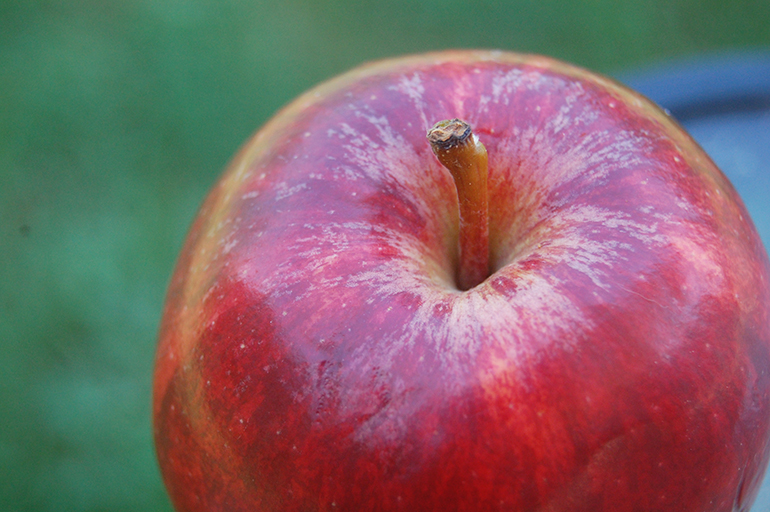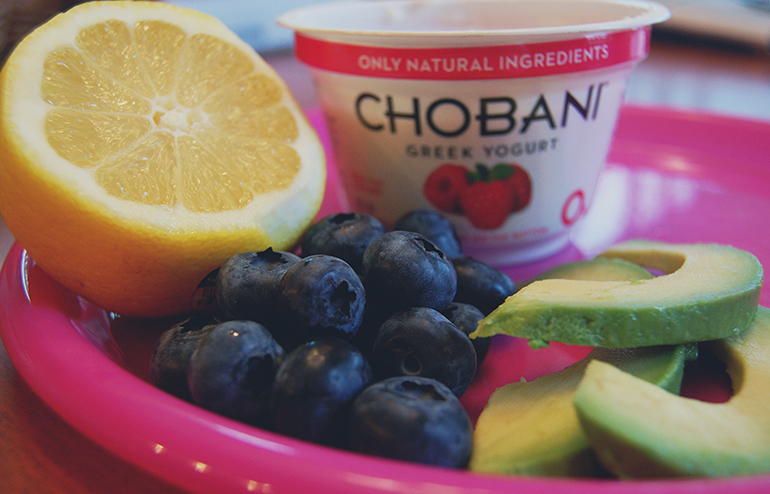Are you ready for meatless meals? For life? Maybe not. A lot of you would immediately back off the vegetarian train because you’re too busy hopping on the bacon train. As a college student, I know how hard it would appear to cut meat out of your diet; however, while I’m no vegetarian myself, I’ve been thinking on the subject and contemplating a future as a vegetarian. I know it’s like convincing a bunch of teenagers that chocolate is bad, but there are so many alternatives and so many sources of food out there that will not only benefit your health but also change some of your beliefs. So these arguments are more of a future note-to-self kind of thing; keep them in mind in case one day you’re ready for the big change.

Photo by Rachael Piorko
You’ll be less prone to disease
According to the USDA and Food and Agriculture Organization of the United Nations, meat is actually not an essential part of what you need to intake for it to be considered balanced. By going vegetarian you can still meet protein requirements (check out this link for some ideas). Because red meat has traces of heme iron, this actually means the chances of you getting colon or rectal cancer are higher; on the other hand, a vegetarian diet will help you decrease the chances of getting kidney stones, gallstones, heart disease, type 2 diabetes and a whole lot more.

Photo Courtesy of Spoon University – Delaware
You’ll be lighter (mentally and physically)
I don’t need to drop statistics on you that it’s common knowledge America has one of the highest obesity percentages in the world. Going on a “vegetarian diet” isn’t exactly like going on another type of diet. For one thing, being a vegetarian is a lifestyle choice, not a temporary fix so you can look good in that dress one month from now. Because you’re in no hurry, your frame of mind starts to forget counting calories and starts making choices beneficial for your health in the long-term. According to this article, research suggests that overweight people who followed a low-fat, vegetarian diets lost an average of 24 pounds which they kept off 5 years later. In terms of mental health, you’ll know that you’re making better choices for your body which gives you peace of mind.
You could live a longer life and help others do so too
Meat eaters experience accelerated cognitive and sexual dysfunction at a younger age, according to author Michael F. Roizen in his book The RealAge Diet: Make yourself younger with what you eat. Just in case you’re not convinced, how about a fun fact? Did you know that the residents of Okinawa in Japan have the longest life expectancy of anyone else in the world? Their diet consists of fiber-rich fruits, vegetables and soy.
As if helping yourself live a longer life isn’t enough, your no-meat diet can actually help to alleviate world hunger. Plants are currently used to feed livestock which help to feed meat eaters; but if you think about it, by being vegetarian more food will thus become available for over 925 million people in poverty and famine. For more statistics click here.
You’ll save the world (kind of)
For all you environmentalists out there, being vegetarian leads to lower greenhouse gas emissions. Might sound like a far stretch right? Just listen. Part of what contributes to greenhouse gases that exacerbates global warming is the livestock: their enteric fermentation (gases released by animals), manure and deforestation to make room for animal grazing and feeding. In addition to this, the more animals raised the more air and water pollution there is. Their 500 million tons of manure annually creates dead zones in the world where water can’t travel.

Photo by Rachael Piorko
These are just some points to think on—you don’t need to make any rash decisions quite yet. In fact, if you’re interested in the subject you should read up on some more convincing arguments made by testimonials from these people who’ve experienced USVeg week and are ready for a more permanent relationship with vegetables. One day at a time, right?

